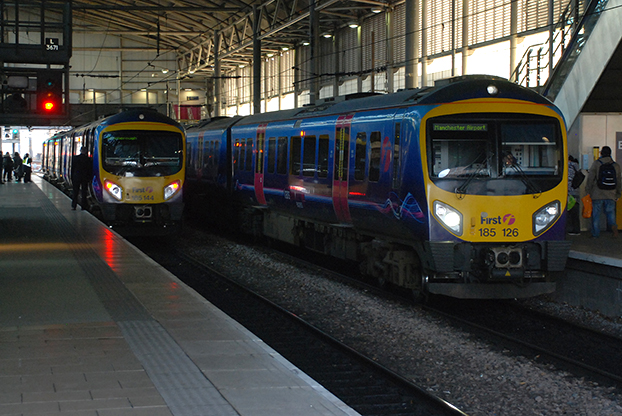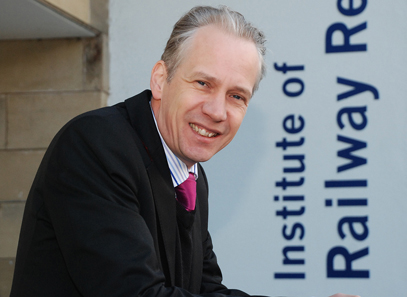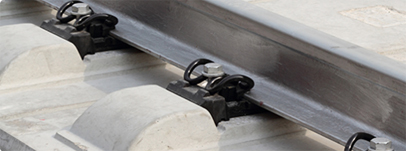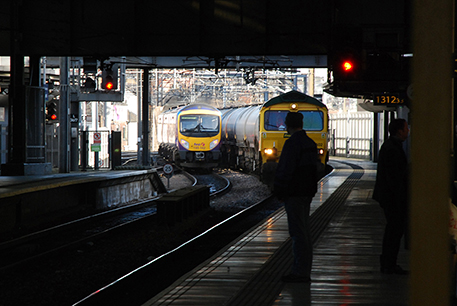Uni launches UK’s first MSc in Railway Systems Safety and Risk

Wed, 03 Feb 2016 10:38:00 GMT
Running from September 2016, the new Masters programme will secure the rail industry’s safety skills gap in the future
 ►Dr Coen van Gulijk Reader in Railway Safety at the University’s Institute of Railway Research
►Dr Coen van Gulijk Reader in Railway Safety at the University’s Institute of Railway Research
WITH passenger numbers soaring and massive projects such as HS2 and Crossrail 2 in the pipeline, rail travel is of burgeoning importance. Now, the University of Huddersfield launches a course to shape safety experts to play a key role in ensuring that our railways remain as safe as possible.
By launching a postgraduate degree course in Railway Safety, the University – home to the world-renowned Institute of Railway Research (IRR) – will also help to fill a looming skills gap that could otherwise slow down the pace of modern railway development.
When the new MSc in Railway Systems Safety and Risk gets underway in September 2016, it will be the first in the UK to combine safety and risk sciences as an independent discipline with railway industry applications. This contrasts with other courses that take an HSE-based approach or an engineering approach. Developed in partnership with experienced industry partners, the course’s stated goal is to create the learning environment for students to develop into inspirational experts with specialist knowledge of rail safety issues. The emphasis on academic skills will also make them attractive to other high risk industries.
 “Safety management is a vital dimension of modern railways”, says the Dr Coen van Gulijk, who is Reader in Railway Safety at the Institute of Railway Research. “Recruits to the new Huddersfield course will generally have an engineering background,” he said, “but there is an extra dimension to safety that allows for other backgrounds.
“Safety management is a vital dimension of modern railways”, says the Dr Coen van Gulijk, who is Reader in Railway Safety at the Institute of Railway Research. “Recruits to the new Huddersfield course will generally have an engineering background,” he said, “but there is an extra dimension to safety that allows for other backgrounds.
“I find that people who are learning about safety risk tend to be socially engaged,” he said. In fact, the course will be open to people who have previously studied subjects such as psychology or the social sciences, although they will also be expected to deal with engineering or mathematical problems.”
Full and part-time options
The one-year course will be open to full-time or part-time students – with the latter likely to be industry-sponsored. The course director is Dr van Gulijk, and lecturers will include four rail safety specialists based at the Institute and two experienced industry partners.
 Modules for the Railway Systems Safety and Risk MSc course (full-time and part-time) include topics such as systemic safety, risk analysis and the vital necessity of learning from accidents. The course also covers a range of people-skills, such as leadership, communication and the role of human factors in causing accidents.
Modules for the Railway Systems Safety and Risk MSc course (full-time and part-time) include topics such as systemic safety, risk analysis and the vital necessity of learning from accidents. The course also covers a range of people-skills, such as leadership, communication and the role of human factors in causing accidents.
There is concern within the railway industry that the age profile of its current engineers – many now well into their fifties – could result in a skills gap.
Professor Simon Iwnicki, who is the Director of the University of Huddersfield’s Institute of Railway Research and who is past chair of the Railway Division of the Institution of Mechanical Engineers, has publicly warned that a looming skills shortage resulting from the “renaissance” in rail and spike in passenger journeys means it is vital to encourage more young people into the field. It has been estimated that the rail industry needs to attract at least 3,000 new engineers in the near future.
“The same problem is evident in rail safety, both in the UK and overseas,” said Dr van Gulijk. Now the newly-devised course that he is directing will help to provide the specialists that the industry needs.
Course links
- Full-time – http://www.hud.ac.uk/courses/2016-17/full-time/postgraduate/railway-systems-safety-and-risk-msc/
- Part-time – http://www.hud.ac.uk/courses/part-time/postgraduate/railway-systems-safety-and-risk-msc/







